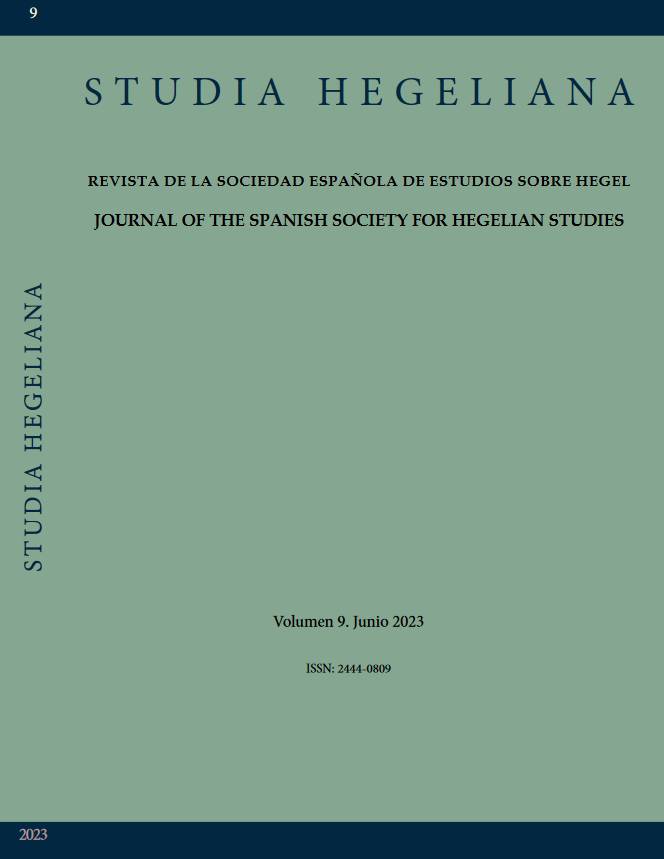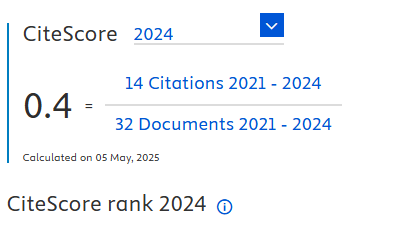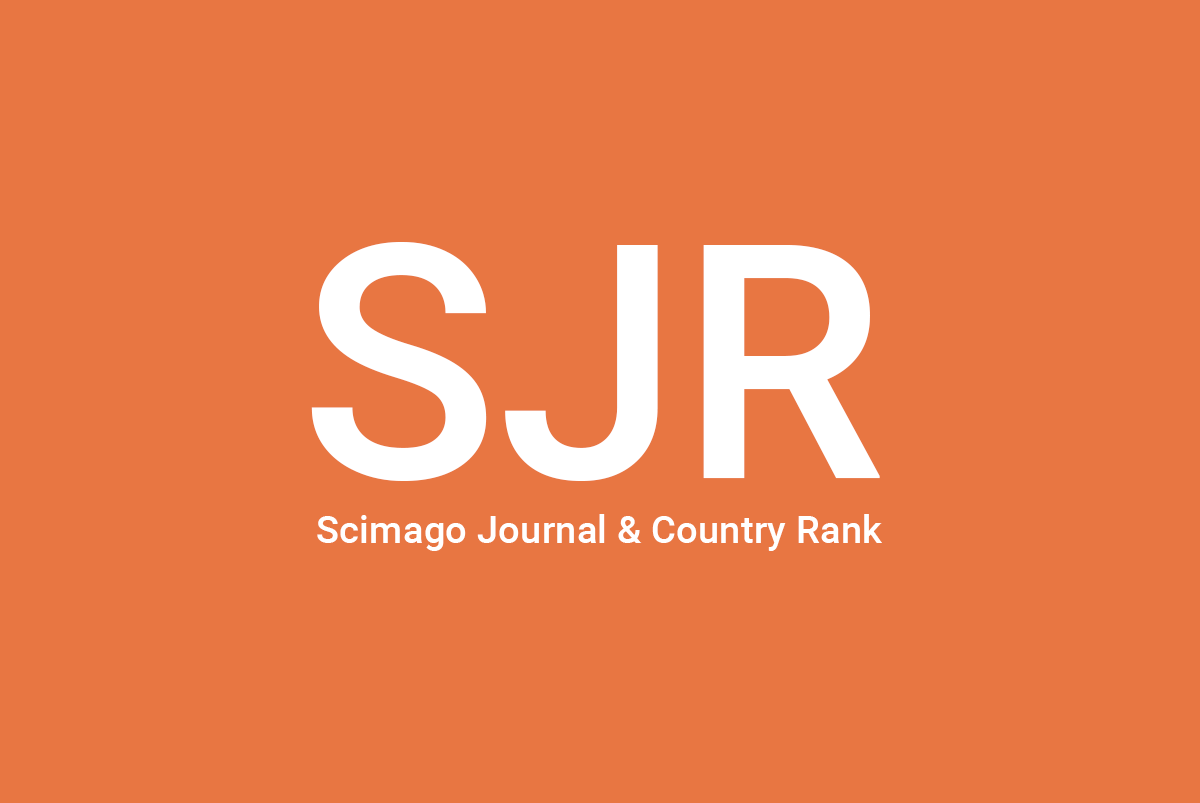The Fractured Recognition: sociopolitical actuality of Hegel's early Jena writings
sociopolitical actuality of Hegel's early Jena writings.
DOI:
https://doi.org/10.24310/Studiahegelianastheg.v9i.16214Keywords:
Recognition, Social Conflict, Social Fragmentation, Social Pathologies, Hegel in JenaAbstract
The extensive proliferation of social conflicts of groups that claim political exclusion, institutional indifference, and underestimation of their forms of life, are evidence of the conceptual insufficiency of the end of history of Fukuyama's Hegel. These collective subjects are not perceived as part of the organic unity that is the social, but rather as cleaved fragments, unrelated to it. I suggest that we can give explanatory value and to grant a normative solution to this social fracture through the concept of recognition developed by Hegel in his Jenense period. Thus, as an update of this concept, these social conflicts can be understood as struggles for the recognition for some of its dimensions, affective, legal and/or social, that have been unjustly denied.
Downloads
Metrics
Publication Facts
Reviewer profiles N/A
Author statements
Indexed in
-
—
- Academic society
- N/A
- Publisher
- Universidad de Málaga
References
Benhabib, S. Natural right and Hegel: an essay in modern political philosophy. Yale University, 1977.
Bruna, C. Esencia ética: objetividad y realización. En Hegel, pensador de la actualidad. Ensayos sobre la fenomenología del espíritu y otros textos, editado por Juan Ormeño K y Vanesa Lemm. Santiago: Universidad Diego Portales, 2007
Buck-Morss, S. Hegel, Haiti, and universal history. University of Pittsburgh Pre, 2009.
Butler, J. Giving an account of oneself. Fordham University Press, 2009.
Clarke, J. Fichte and Hegel on recognition. British Journal for the History of Philosophy, 2009, vol. 17, no 2, p. 365-385.
Cook, S. Hegel's theory of recognition: From oppression to ethical liberal modernity. Bloomsbury Publishing, 2009.
Cordua, C. Derecho y coacción, según Hegel. Rev. Jur. UPR, 1990, vol. 59, p. 157.
De la Maza, L. M. Actualizaciones del concepto hegeliano de reconocimiento. En Veritas, 2010, no 23, p. 67-94.
De la Maza, L. M. Lógica, metafísica, fenomenología: la Fenomenología del Espíritu de Hegel como introducción a la filosofía especulativa. Ediciones Universidad Católica de Chile, 2003.
Fukuyama, F. The end of history? En The national interest, 1989.
Harris, H. S. Hegel’s Development: Night Thoughts, vol. 2, 2 vols. Oxford University Press.1983.
Hegel, G.W.F. Friedrich. Traducción y notas de María del Carmen Paredes. Diferencia entre el sistema de filosofía de Fichte y el de Schelling. Madrid: Alianza, 1989.
Hegel, G.W.F. El joven Hegel: ensayos y esbozos. Traducción y notas de José María Ripalda. FCE, 2014.
Hegel, G.W. F., Gesammelte Werke, Hamburg: Felix Meiner, 1968.
Hegel, G.W. F. System der Sittlichkeit: Critik des Fichteschen Naturrechts. Felix Meiner Verlag, 2001.
Honneth, A. Pathologies of reason. En Pathologies of Reason. Columbia University Press, 2009.
Honneth, A. La sociedad del desprecio. Trotta, 2011.
Honneth, A. The struggle for recognition: The moral grammar of social conflicts. MIT press, 1996.
Jaeggi, R. Alienation. Columbia University Press, 2014.
Jaeggi, R. Critique of forms of life. Harvard University Press, 2018.
Martín, M. D. C. P. (2015). El concepto de infinitud en el joven Hegel. Studia Hegeliana: revista de la Sociedad Española de Estudios sobre Hegel, 1, 123-138.
Pinkard, T. Hegel: A biography. Cambridge University Press, 2001.
Takeshima, A. Hegel’s Early Political Philosophy: The Natural Law Essay and the System of Ethical Life. En Hegel’s Political Philosophy: Themes and Interpretations. Peter Lang AG, 2021. p. 7-22.
Downloads
Published
How to Cite
Issue
Section
License
This journal provides immediate free access to its content under the principle of making research freely available to the public. All contents published in Studia Hegeliana. Journal of the Spanish Society for Hegelian Studies, are subject to the Creative Commons Attribution-NonCommercial-ShareAlike 4.0 licence (specifically, CC-by-nc-sa), the full text of which can be found at <http://creativecommons.org/licenses/by-nc-sa/4.0>. Derivative works are therefore permitted as long as they are not used for commercial purposes. The original work may not be used for commercial purposes. The journal is not responsible for the opinions expressed by the authors of the works published in it.
It is the authors' responsibility to obtain the necessary permissions for images that are subject to copyright.
Authors whose contributions are accepted for publication in this journal retain the copyright. It is non-exclusive right to use their contributions for scholarly, research and educational purposes, including self-archiving or deposit in open access repositories of any kind.
Since volume 7 of 2021 the journal Studia Hegeliana has changed the copyright. Since that year the authors have retained the copyright.
The electronic edition of this journal is published by the Editorial de la Universidad de Málaga (UmaEditorial), being necessary to cite the source in any partial or total reproduction.







244.png)






















